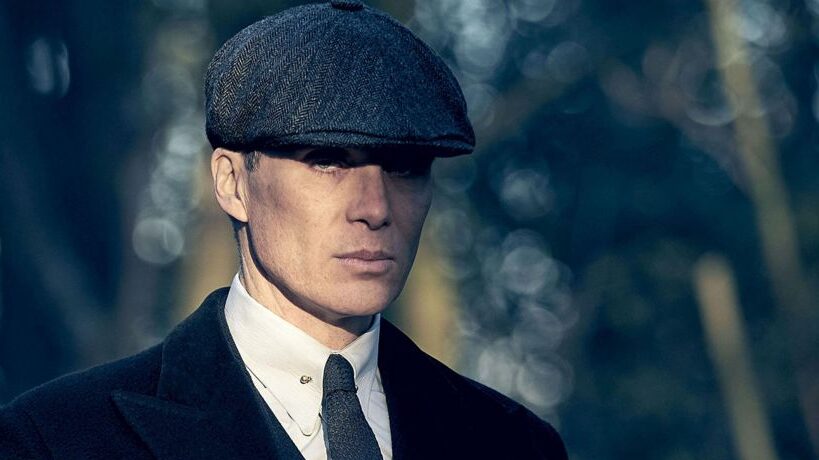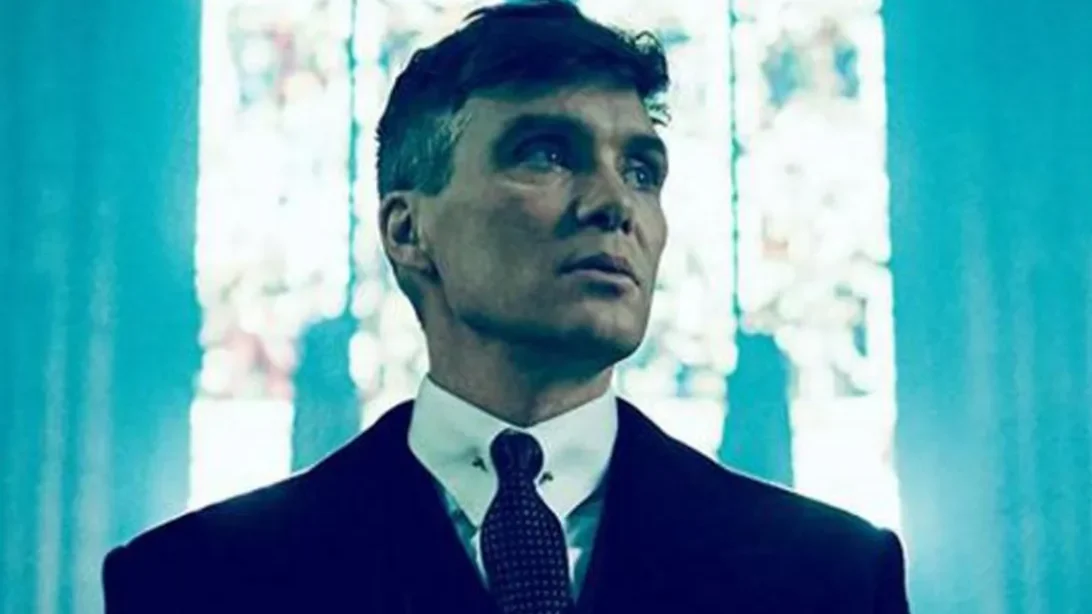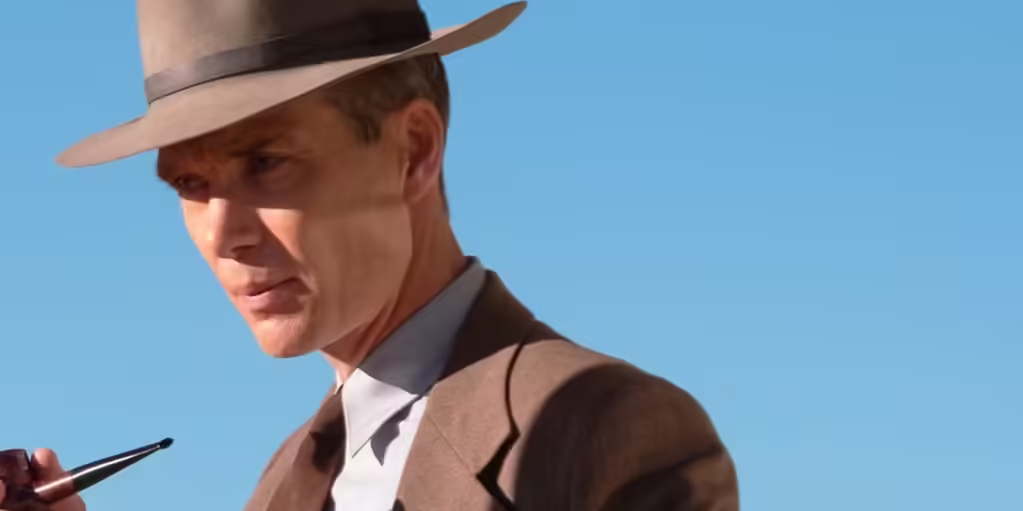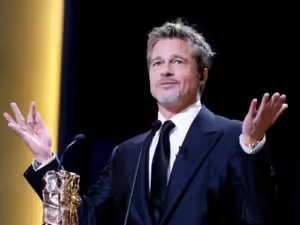
The Peaky Blinders saga continues, much to the excitement of fans, as series creator Steven Knight has officially confirmed that Cillian Murphy will reprise his iconic role as Tommy Shelby in the upcoming spin-off film. The much-anticipated announcement has laid to rest months of speculation about whether the actor, whose portrayal of the enigmatic gang leader has become synonymous with the show, would return to finish Shelby’s story in the movie.
Murphy led the beloved six-season British crime drama, which aired from 2013 to 2022. As the commanding central figure of the Peaky Blinders, a notorious Birmingham gang operating in the aftermath of World War I, Murphy’s Shelby became a cult character. Throughout the series, Tommy’s complex evolution, from war-hero-turned-criminal mastermind to political figure and businessman, captivated audiences globally.
Murphy’s Return Confirmed for the Film
During the premiere of his new BBC drama, The Town, Knight confirmed that “Murphy is definitely returning for [the movie]” and revealed more details about production. The film is slated to begin shooting in September 2024 in Digbeth, a key location in Birmingham, the show’s setting. Fans of Peaky Blinders are familiar with Digbeth, which was a central location for much of the gang’s operations in the series.
Murphy’s return isn’t a huge surprise, as the actor had previously expressed interest in revisiting Tommy Shelby if the script warranted it. “If there’s more story there, I’d love to do it. But it has to be right,” Murphy said in an interview with Rolling Stone in 2022. He also emphasized the importance of continuing the narrative only if the film felt “legitimate and justified.” Murphy, like many of the series’ fans, took pride in the way the sixth season concluded, acknowledging that any new project would have to maintain the same level of excellence.
A Film Instead of a Seventh Season
Back in 2021, Knight announced that the story of Peaky Blinders would conclude with a film instead of a seventh season, to wrap up the narrative threads that remained after the show’s final season. The decision to end the series with a movie instead of another season raised questions among fans, but Knight reassured them that the movie would serve as a fitting conclusion to the Shelby family’s story.
In an interview with Esquire, Knight mentioned that he had a clear vision for the film’s narrative, saying, “The film, I know exactly what it’s about. And I know what two stories it’s going to tell.” While he didn’t provide specifics, it’s clear that Peaky Blinders will continue to explore complex themes such as class struggle, post-war trauma, and the corruption of power—all framed by the gripping personal journey of Tommy Shelby.
The Story So Far and What’s to Come
Peaky Blinders carved out a distinct place in television history with its stylized portrayal of the 1920s-1930s Birmingham gang led by Tommy Shelby and his family. The show’s blend of historical fiction, political intrigue, and raw drama struck a chord with global audiences, cementing its status as one of the UK’s most acclaimed series. Alongside Murphy, the show featured performances from an impressive cast, including Tom Hardy as Alfie Solomons, Paul Anderson as Arthur Shelby, and Helen McCrory as the formidable Aunt Polly, whose death in 2021 cast a shadow over the final season.
The upcoming film will presumably address loose ends left after the series finale. In season six, Tommy Shelby’s arc seemed to come full circle, with the character grappling with mortality, personal loss, and his waning control over the family business. Yet, Knight has hinted that the movie will not only close out the Peaky Blinders story but also leave space for potential future spin-offs or continuations.
Impact and Legacy

The announcement of a Peaky Blinders film has reignited excitement among the fanbase, many of whom have been speculating about potential plotlines, new characters, and what will become of Tommy Shelby. Knight’s commitment to telling a compelling story, combined with Murphy’s return, promises to deliver the same gritty, immersive storytelling that made the series a global phenomenon.
In closing, the Peaky Blinders movie marks an exciting new chapter for the franchise, offering one last ride with the indomitable Tommy Shelby. With a star-studded cast, rich historical setting, and Steven Knight’s storytelling prowess, the film is poised to bring the epic saga to a thrilling and satisfying conclusion. Fans can look forward to the film’s release, as it not only brings back beloved characters but also serves as a testament to the lasting legacy of one of TV’s most memorable crime dramas.
What inspired Steven Knight to choose a film over a seventh season?
Steven Knight’s decision to end Peaky Blinders with a film rather than a seventh season stems from several creative and practical motivations. Initially, there were plans for a seventh season, but these shifted when the pandemic hit. Knight explained that during the lockdown, he had time to reflect and reimagine how best to conclude the story. He felt that a feature film would allow him to explore the Peaky Blinders universe on a grander scale. This cinematic format also aligns with his vision of expanding the Peaky Blinders universe into a franchise that could potentially lead to spin-offs.
Additionally, Knight has always viewed Peaky Blinders as a deeply cinematic series, with its visually rich storytelling and epic narrative arcs, making a film a natural evolution for the show. In his own words, he stated that the film would allow him to bring everything “full circle” and wrap up the story in a more definitive, powerful way than a traditional TV finale might have allowed.
How does Cillian Murphy feel about returning as Tommy Shelby?
Cillian Murphy has expressed enthusiasm about reprising his role as Tommy Shelby in the upcoming film. For Murphy, playing Tommy has been one of the most significant roles of his career, and he’s been vocal about his deep connection to the character. In interviews, Murphy emphasized that he would only return for the film if the script was compelling enough to justify it, and he trusted Steven Knight to deliver a story worthy of Tommy’s final chapter.
Murphy acknowledged that the final season wrapped up many narrative threads in a satisfying way, but he remained open to continuing the story as long as it felt organic. He has also shared that while the show’s conclusion was bittersweet, returning for a film is exciting, especially given the opportunity to explore Tommy in new ways within a larger-scale project.
What are the expectations for the film’s critical reception?
Given the immense popularity and critical success of the Peaky Blinders TV series, expectations for the film are high. Fans and critics alike anticipate that the film will bring a fitting and dramatic close to Tommy Shelby’s saga while maintaining the high production standards, compelling writing, and atmospheric visuals that have defined the series.
Critics have praised Peaky Blinders for its strong character development, historical depth, and unique visual style. The movie is expected to uphold these qualities, while taking advantage of the film medium to heighten the drama, stakes, and scope. The involvement of Cillian Murphy and other key cast members also boosts expectations for strong performances.
How will the film’s storyline be different from the TV series?
While the film will continue from where the series left off, it is expected to be more expansive, dealing with broader themes and potentially global implications. Steven Knight has hinted that the film will not only focus on Tommy Shelby’s personal journey but also explore the rise of fascism in Europe, setting the story in the political and social turmoil of the 1930s.
Unlike the episodic structure of the series, which allowed for deep dives into individual characters and subplots, the film will likely have a more streamlined narrative with a sharper focus. Knight has teased that the movie will feature two main storylines, and fans have speculated that these could involve international criminal enterprises or political movements, given the show’s increasing political undertones.
What challenges did the cast face during the filming process?
While specific challenges related to the Peaky Blinders movie filming have not been fully detailed, some general issues are known. The most significant challenge for the cast, particularly for Cillian Murphy and Steven Knight, was the loss of actress Helen McCrory, who played Polly Gray. McCrory passed away in 2021, which profoundly impacted the production and the entire Peaky Blinders family. Her absence was felt during the final season, and it is expected that the film will continue to address the loss of such a pivotal character.
Additionally, the ongoing impact of the COVID-19 pandemic affected many aspects of production, from scheduling to health protocols, adding extra layers of complexity to the filming process. Despite these challenges, the cast remains committed to delivering a film that honors the legacy of the series and brings the story to a satisfying conclusion.
The Impact of Jade‘s Critical Reception on the Careers of Its Actors
Released in 1995, Jade was positioned as a thrilling erotic drama that aimed to capitalize on the popularity of the genre during that era. However, the film faced a harsh critical reception that would ultimately impact the careers of its key actors, particularly Linda Fiorentino and David Caruso.
Linda Fiorentino, who played the film’s lead role, had previously garnered attention for her performances in The Last Seduction and Men in Black. However, following the negative reviews for Jade, her career trajectory shifted significantly. Critics lambasted her performance as unconvincing, which seemed to contribute to a decline in high-profile roles. Despite her talent, Fiorentino found it challenging to secure leading parts in subsequent films, leading to a quieter career in the following years. Similarly, David Caruso, who starred alongside her, saw a dip in his film career despite earlier success in the TV series NYPD Blue. Although he would later find redemption in television with CSI: Miami, Jade marked a notable setback in his pursuit of leading roles in film.
Comparison to Other Films Released in 1995
In the context of its release year, Jade was not alone in facing criticism. The mid-90s was a mixed bag for cinema, with films like Showgirls and Waterworld also receiving significant backlash. Showgirls, infamous for its over-the-top performances and melodramatic plot, became a staple in discussions about poorly received films, winning multiple Golden Raspberry Awards and achieving a cult following over the years. While Jade aimed for a blend of eroticism and crime drama, it struggled to find its footing amidst the more notorious failures of the year.
When compared to these films, Jade was somewhat less notorious in the public consciousness. It didn’t gain the same level of infamy as Showgirls, which has since been reexamined for its camp value. Nonetheless, both Jade and Showgirls highlight the volatility of the film industry in the 1990s, where the failure of a film could drastically alter an actor’s career trajectory.
Performance at the Golden Raspberry Awards
Jade was nominated for several Golden Raspberry Awards, including Worst Screenplay, Worst Actress for Linda Fiorentino, and Worst Director for William Friedkin. However, it did not win any of the awards. The Golden Raspberries, known for spotlighting the year’s most critically panned films, provided a stark contrast to the film’s original marketing as a sophisticated thriller.
In comparison, Showgirls dominated the Razzies that year, receiving five nominations and winning several awards, solidifying its place as a cultural reference point for cinematic failures. Jade’s relatively muted presence at the Razzies, where it faced stiff competition from more egregiously received films, illustrated that while it was criticized, it did not achieve the same level of infamy.
Conclusion
The critical reception of Jade significantly impacted the careers of its leading actors, particularly Linda Fiorentino and David Caruso, marking a decline in their film careers following the film’s release. In the context of 1995, Jade was part of a trend of disappointing films that struggled to resonate with audiences and critics alike. While it performed poorly at the Golden Raspberry Awards, it remained overshadowed by more notorious films of the time, serving as a cautionary tale about the unpredictable nature of the film industry. Ultimately, Jade stands as a reminder that even with a promising cast and concept, critical reception can drastically alter the course of an actor’s career and a film’s legacy.



















